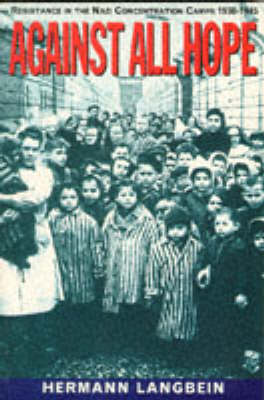History and Politics
1 total work
In this major and comprehensive work, hailed by Le Monde as a "monumental study, " Hermann Langbein shatters the myth that all prisoners of concentration camps during World War II passively let themselves be slaughtered. A prisoner himself and one of the leaders of resistance at Auschwitz, Langbein painstakingly documents the detailed account of the history of the camps and the story of resistance. Spanning the initial years to the chaotic weeks before liberation, Against All Hope is the first systematic presentation of organized resistance. Deeply moving, it is an unforgettable testament to the resilience and determination of the human spirit. As the camps were being established, Langbein examines the composition of the initial prisoners; a mixture of political prisoners (Reds), convicted criminals (Greens), Jews, and "anti-socials" and reveals the brutal struggle for camp domination between the Reds and Greens. With analytic detail, he presents the history and nature of the individual camps and the inmate self-government. In "The Actors, " Langbein recognizes for the first time the various inmate groups, Germans, Austrians, Poles, Russians, Communists, Socialists, Jehovah's Witnesses, Gypsies and Jews, and how they related to resistance. Langbein portrays the incredible impossibility of resistance against the all-powerful total domination of the Nazi camp administration. The prisoners were to be morally broken, psychically disabled, and even physically destroyed. To resist against this systematic demoralization, its isolation from the rest of the world, and its intention to exterminate, was inconceivable. Through chronic malnutrition, beatings, torture, and the permanent terrorism ofthe SS, the prisoners were led to believe "there is only one way out of here: through the chimney." And yet, resistance, individual initiatives and organized action, to aid fellow inmates, to escape, to revolt, to thwart management campaigns, to mitigate the horrendous crimes were
